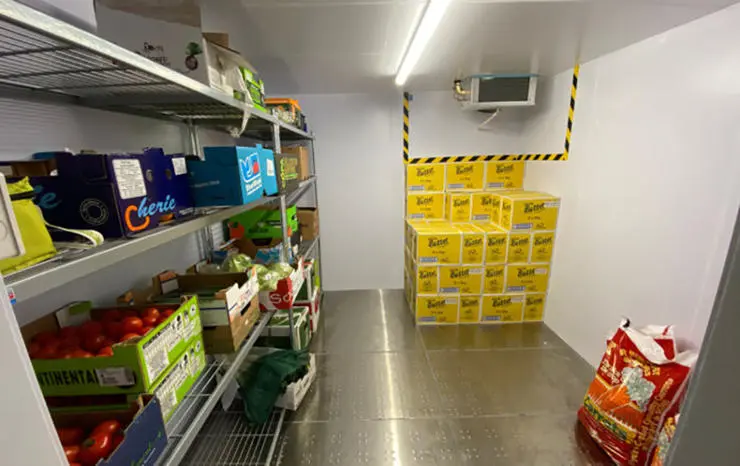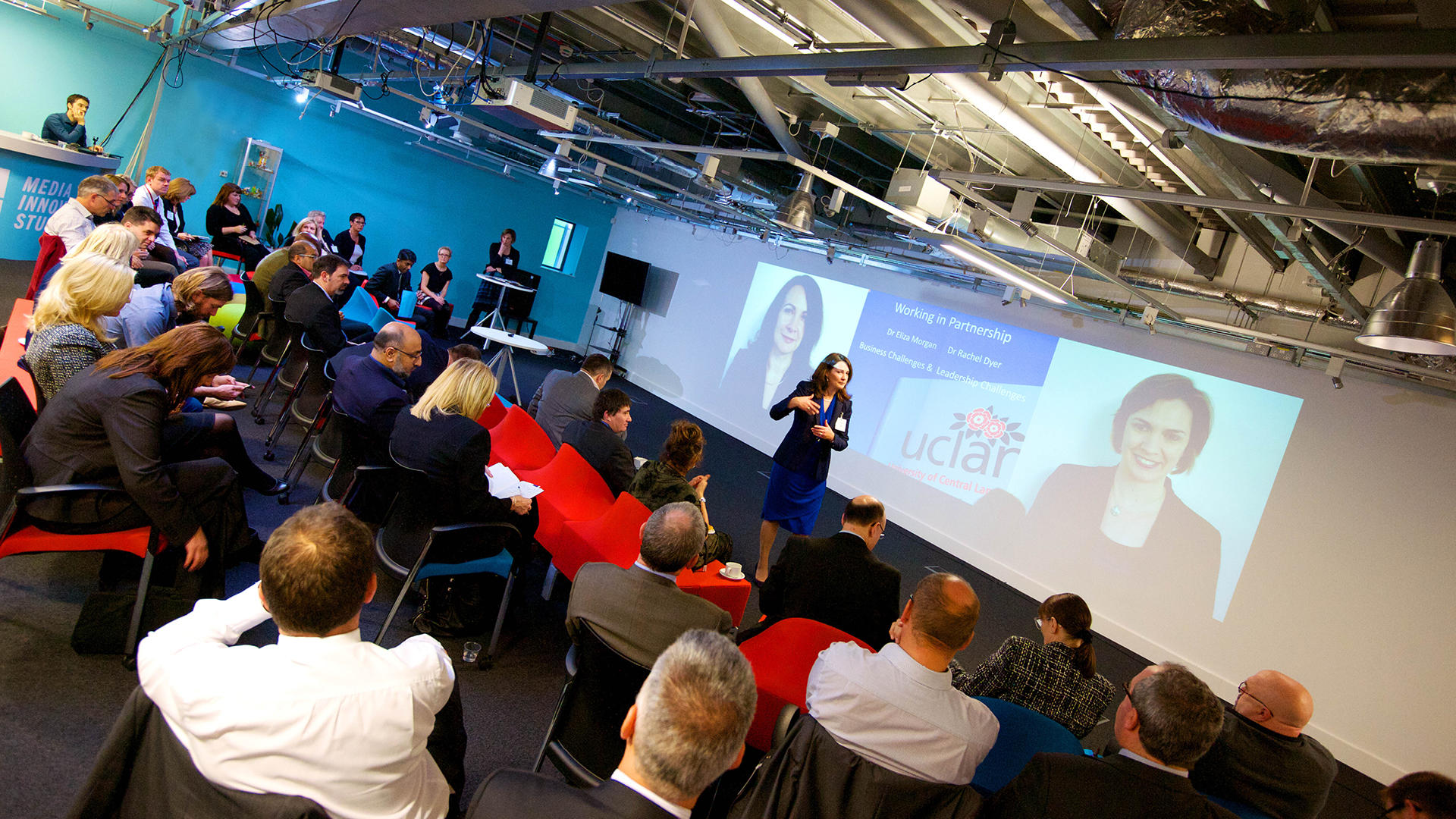Thanks to a carbon audit by the University of Central Lancashire’s Making Carbon Work (MaCaW) project and a grant part-funded by the European Regional Development Fund (ERDF), catering supplier Whitewells is exiting the pandemic a more efficient, effective and low carbon business than it entered it.
Whitewells Catering Supplies Ltd has been supplying restaurants, schools and businesses in Morecambe and across Lancashire with fresh produce and catering goods since 1942. In March 2019, the family-owned company asked us to carry out a free audit of its business to identify ways of reducing its carbon footprint. But then, with the audit complete and major opportunities identified, the pandemic struck.
“Virtually overnight our industry went from supplying lots of customers to having shelves of stock and almost no one to sell it to,” explains Whitewells’ Sales and Marketing Manager, Jamie Wright. With the realities of pandemic survival to face, carbon reduction was put on hold but as the picture improved, Jamie returned to his carbon assessment.
The carbon report
Due to the nature of the site the Auditors were able to provide in depth analysis of all energy using equipment. “The level of detail was impressive,” Jamie explains. “The project shared with us an itemised report detailing every lightbulb and piece of office equipment and it tells you exactly how much electricity each item is using and what carbon is being generated. I was impressed with the precision and depth of that. It’s quite surprising – and sobering - to see just how much carbon even a computer screen can generate in a year, and every gramme and kilogramme of carbon equates to money you’re spending.”
The report identified two key areas for improvement: the company’s refrigeration and lighting. “Our fridges and lights are on all day so we knew those would be the most energy intensive parts of the business.”
Grant-supported business efficiency
By completing the carbon saving analysis with MaCaW, Whitewells were able to access the MaCaW grant process. Through it, the company could apply for a grant of up to £15,000 which they could match fund 50% . We supported the business with its application for 50% funding of an £8,800 project to replace ageing lighting and consolidate refrigerator space. Funding was approved in summer 2020.
“We ended up replacing seven smaller fridges – one of which was around 30 years old – with one much bigger and more efficient cold room for perishables,” Jamie explains. “That has pretty much trebled our storage capacity and made us much more efficient. Now I can buy a full pallet of a product and enjoy the economies of scale that brings. We’re also able to deliver a better service to our customers, with stock available on hand that we might not have had previously, simply because we didn’t have room for it.”
It’s a similar story with the lighting. “Some of our lighting wasn’t very effective – not just from an energy perspective but in terms of the quality and positioning of the lights. Using new sensor-activated LEDs to rationalise light levels across the warehouse has created a much better working environment for staff – and although we always worked safely, the improved lighting enhances that.”
Cutting carbon. Cutting costs
The equipment purchased utilising the MaCaW grant will generate emissions savings totalling 4.39 tonnes of CO2e per year, with a reduction in energy costs of approx. 10-15%. Jamie has yet to see the full energy savings picture (“we really need a full year under our belt and it’s difficult to compare this year with last”) but a figure anywhere in that ballpark, combined with the increase storage capacity, would leave him “very happy”.
Perhaps the biggest difference of all has been the pace of change enabled by the assessment and grant. “We would have had to make changes relatively soon, if only from a business efficiency perspective,” Jamie clarifies, “but it may well not have happened for a couple of years yet. The grant has enabled us to move faster – and that has meant we’ve become a more efficient, more effective business faster than we would have done.
"It’s not just the money we’ve saved with the grant that counts. The grant has also enabled additional years of efficiency savings we wouldn’t otherwise have had."
— Jamie Wright, Sales and Marketing Manager at Whitewells
The changes have meant Whitewells is well-placed to respond to the return of something closer to business as usual. “Things have bounced back very quickly,” Jamie confirms, “and our customers aren’t even at full capacity yet.”
A “no brainer”
Jamie doesn’t have to think hard about his recommendation. “Everyone at MaCaW has been great,” he says. “It’s been brilliant from a commercial point of view because we’ve trebled our chilled storage and effectively only paid for half of that. As a result we’ve increased the quality of our operation, also for half the cost. And as a result of that we’ve reduced our carbon footprint. It really is a no brainer.”
To explore how MaCaW could help make your business more efficient while supporting your carbon reduction activities, contact us.
MaCaW is a University of Central Lancashire (UCLan) project, an industry and academic collaboration funded by the ERDF alongside UCLan, and supported by Boost; Lancashire’s business growth hub.


